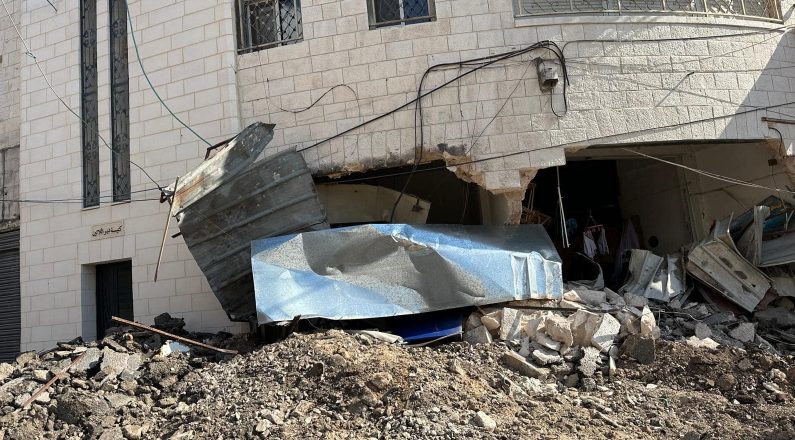Sami El-Yousef, the General Director of the Latin Patriarchate of Jerusalem, has publicly decried the widespread damage inflicted by Israeli forces in various West Bank cities, far from the war-torn Gaza Strip. Taking to Facebook, El-Yousef expressed frustration and sorrow over the recent destruction, particularly highlighting the extensive damage to the Catholic church in Jenin, which has become a focal point of the latest Israeli incursions.
A Church in Ruins, Far From Gaza
The Catholic church in Jenin, located in the heart of the West Bank, has once again been caught in the crossfire of the ongoing conflict. El-Yousef noted that just as the final payments were being made for repairs from previous damage during a summer raid, a fresh wave of destruction has left the Latin Church and convent complex in ruins. “The main street was bulldozed, completely wiping out the infrastructure,” he wrote. The damage, he emphasized, was not incidental but part of a larger military operation.
West Bank Under Siege: A New Gaza?
El-Yousef’s comments go beyond lamenting the physical destruction, suggesting that the West Bank is slowly being transformed into another Gaza—a region notorious for its intense conflict and humanitarian crises. His question, “Is this the beginning of turning the West Bank into another Gaza?” reflects the growing fears among Palestinians and international observers that the conflict in this region is spiraling out of control.
The incursion into Jenin, which is geographically distant from Gaza, raises troubling questions about the Israeli government’s approach to the broader Palestinian territories. El-Yousef’s frustration is palpable as he asks, “When will the international community decide that enough is enough?” His words point to the lack of decisive global intervention in halting the cycle of destruction and violence that has plagued the region for decades.
A Call for Peace Amid Destruction
For El-Yousef, the reliance on military might only perpetuates violence, deepening resentment and resistance rather than fostering peace. He urged Israel to reconsider its strategy, arguing that “military power will not bring peace” but will instead sow the seeds of further hostility. This appeal underscores the growing chorus of voices calling for a reevaluation of policies that have led to repeated devastation, with no resolution in sight.
Despite the grim situation, El-Yousef concluded his post with a glimmer of hope, calling for prayers and a miracle. His appeal resonates with many who have long awaited a breakthrough in the Israeli-Palestinian conflict, one that brings justice, security, and dignity to both sides.
A Wider Context of Destruction
The latest damage to the church in Jenin is not an isolated event. It mirrors a broader pattern of destruction across the West Bank as Israeli forces continue operations under the pretext of security concerns. The targeting of a religious institution, particularly one that had just undergone repairs, highlights the indiscriminate nature of these incursions. For Palestinians, such actions not only devastate infrastructure but erode any hope for lasting peace.
As the conflict escalates, the destruction in places like Jenin serves as a stark reminder of the toll the occupation has on communities, religious institutions, and efforts to rebuild shattered lives. Sami El-Yousef’s passionate plea is a call for the world to pay attention, and for leaders to take decisive action to halt the cycle of violence before the West Bank faces the same fate as Gaza.
By ZENIT STAFF






